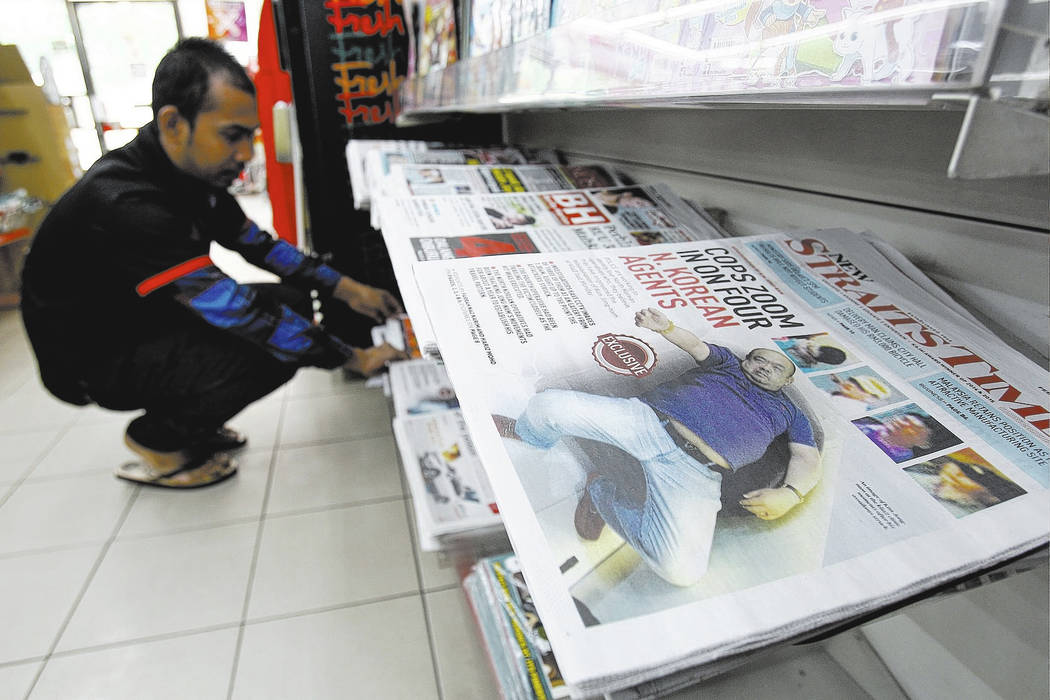COMMENTARY: Will newspapers save democracy?

LOS ANGELES
It was without a hint of irony or conceit that Dr. Patrick Soon-Shiong said his purchase of the Los Angeles Times in February 2017 was not just to save a local newspaper, but to save democracy.
Speaking with Times Executive Editor Norman Pearlstine at the annual Los Angeles Times Festival of Books, Soon-Shiong said he devoted some of his fortune to the Times in part to keep people informed: “It’s unfathomable to me as a Los Angeleno not to have an important voice, not just for California, but for the nation.”
And that voice should be used to illuminate issues of public concern, including climate change and health care, he added.
That’s especially important, he said, in an era in which disinformation is rife, and people struggle to tell the difference between truth and fiction. The Times’s brand, he said, tells readers that they can trust the information in the newspaper has been vetted by great journalists.
And that should be the goal of all newspaper brands, especially in an age when politicians on both sides of the aisle are increasingly willing to challenge the media’s unflattering coverage as “fake news.” And that’s all the more true when the highest official in the land makes “fake news” a mantra.
“We have to rely on something other than the government to tell us what’s true,” said Ben Winters, an author of dystopian fiction, at a separate panel at the festival.
He’s absolutely right, and that role has traditionally been filled by newspapers, television and radio stations, magazines and books. Only now, there are people willing and able to hijack those media — especially online — whose goal is to spread false information to achieve a political end.
And there are fewer people in the real media to counter those untruths. Pearlstine told a panel at the festival that the Orange County, California, bureau of the Times used to be staffed by 200 reporters. There are fewer than 10 in the Times Orange County bureau now, Pearlstine said.
And that’s just day-to-day coverage. When it comes to specialized areas of journalism such as investigative reporting, things get even more difficult, said Christa Scharfenberg, CEO of the Emeryville, California-based Center for Investigative Reporting. She said that kind of reporting is expensive, and often doesn’t lend itself to for-profit newspapers. (The Center for Investigative Reporting is organized as a nonprofit.)
Although the center publishes material on its website and produces a podcast, Scharfenberg said it still partners with newspapers to report and publish stories, because print newspapers still drive impact and provide the room to go into detail about investigative findings.
But the media have their critics, not just from without, but also from within. Robert Scheer, a former Los Angeles Times journalist who runs the contrarian website Truthdig, took over a panel on reporting in the age of President Donald Trump to point out how the media had gotten the story wrong, sometimes with deadly consequences. He pointed to coverage of the Gulf of Tonkin incident in the Vietnam era and the breathless claims that Iraq had weapons of mass destruction before the 2003 invasion and occupation of that country.
Called out by moderator Del Quentin Wilbur, who said columnists and alternative journalists can say things the mainstream media cannot, Scheer shot back that it’s simply a conceit that reporters for the establishment press are objective while all other journalists are not. Look no further than coverage of Trump for examples, Scheer said.
In fact, he surprised the mostly liberal crowd by first criticizing, then defending, Trump, saying the renegotiated NAFTA deal is better for workers and that cooperation with Syria and negotiation with North Korea are good things because they can forestall war. “I think President Trump is a mixed bag,” Scheer said.
Unlike others, Scheer predicted the model for journalism is broken — in part due to the internet, “the worst of all possible worlds” — and that it wasn’t coming back.
Perhaps he’s right, Soon-Shiong is wrong and newspapers won’t save democracy. Let’s hope not. Robust, truth-telling newspapers have played a vital role in America since before her founding, and the country needs them now more than ever.
Contact Steve Sebelius at SSebelius@reviewjournal.com or 702-383-0253. Follow @SteveSebelius on Twitter.